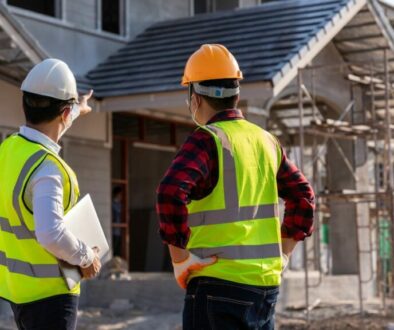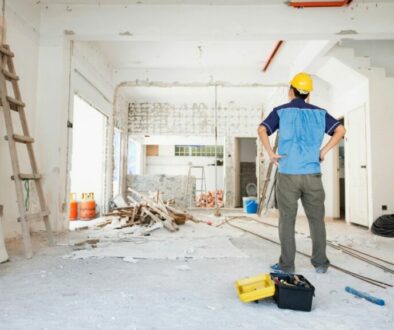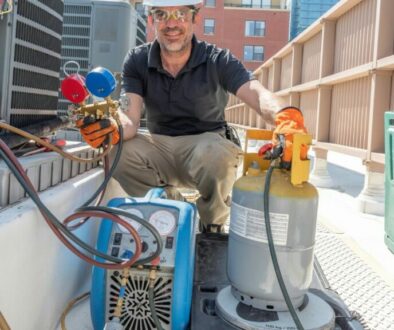Master Plumber Licensure Exam
If you are a plumber looking to advance your career, obtaining a master plumber license can provide you with numerous opportunities. However, before you can become a licensed master plumber, you must pass the master plumber licensure exam. In this article, we will explore what you need to know about the exam, how to prepare for it, and what to expect on exam day.
Understanding the Master Plumber Licensure Exam
Are you considering becoming a master plumber? If so, it’s important to understand the licensure exam and what it entails. Let’s take a closer look at the purpose of the exam, eligibility requirements, and exam format and structure.
Purpose of the Exam
The master plumber licensure exam is not just another test. It’s designed to test your knowledge of plumbing codes, regulations, and best practices. The purpose of the exam is to ensure that individuals who receive a master plumber license have a deep understanding of the plumbing industry and are equipped to provide high-quality plumbing services to clients.
As a master plumber, you will be responsible for ensuring that plumbing systems are installed and maintained correctly. You’ll need to be able to identify potential problems and come up with effective solutions. The licensure exam is designed to prepare you for these responsibilities and ensure that you’re ready to take them on.
Exam Eligibility Requirements
Before you can take the master plumber licensure exam, you must meet certain eligibility requirements. These typically include having a certain amount of plumbing experience and completing specific plumbing education or training programs. Check with your state or local licensing board to find out the specific requirements in your area.
It’s important to note that the eligibility requirements can vary depending on where you live. Some states may require more experience or education than others. Make sure you understand the requirements in your area before you start preparing for the exam.
Exam Format and Structure
The master plumber licensure exam is typically a multiple-choice test that is administered at a testing center. The length of the exam and the number of questions may vary depending on your location. However, the exam typically covers a range of plumbing topics and is divided into sections that correspond to those topics.
Some of the topics that may be covered on the exam include plumbing codes and regulations, water supply systems, drainage systems, and plumbing fixtures. You’ll need to have a deep understanding of these topics in order to pass the exam and become a licensed master plumber.
It’s important to prepare for the exam by studying the topics that will be covered. You may want to consider taking a prep course or working with a tutor to ensure that you’re fully prepared.
The master plumber licensure exam is an important step in becoming a licensed master plumber. By understanding the purpose of the exam, eligibility requirements, and exam format and structure, you’ll be better prepared to take the exam and succeed in your career as a master plumber.
Preparing for the Master Plumber Licensure Exam
If you’re interested in becoming a master plumber, passing the licensure exam is a crucial step in achieving your goal. The exam is designed to test your knowledge and understanding of plumbing concepts, codes, and regulations. To help you prepare for the exam, there are a variety of study materials and resources available.
Study Materials and Resources
One of the most important resources for studying for the master plumber licensure exam is the textbook. A good textbook will cover all the important topics you need to know, including plumbing codes, safety procedures, and installation techniques. You can find plumbing textbooks at your local bookstore or online.
In addition to textbooks, there are many online courses and study guides available that can help you prepare for the exam. These resources may include video lectures, practice exams, and interactive quizzes. Some of these resources are free, while others require a fee.
If you’re looking for a more hands-on approach to studying, you may want to consider attending a plumbing education or training program. These programs provide you with the opportunity to gain practical experience and learn from experienced plumbers. Many community colleges and trade schools offer plumbing programs that can help you prepare for the exam.
Developing a Study Plan
Once you have gathered the necessary study materials, it is important to develop a study plan to help you prepare for the exam. A study plan will help you stay organized and focused, and will ensure that you cover all the important topics before test day.
When developing your study plan, consider creating a schedule for studying and setting deadlines for completing practice exams and other assignments. Be sure to allocate enough time for each topic, and don’t forget to include breaks and rest days in your schedule.
Tips for Effective Studying
Effective studying for the master plumber licensure exam requires discipline, focus, and dedication. Here are some tips to help you make the most of your study time:
- Practice time management: Set aside dedicated study time each day and stick to your schedule. Avoid distractions like social media and television during this time.
- Review and memorize important concepts: Plumbing concepts can be complex and technical, so it’s important to review and memorize important terms and definitions.
- Develop study strategies that work for you: Everyone learns differently, so it’s important to develop study strategies that work for you. This may include taking notes, creating flashcards, or using mnemonic devices.
- Seek out a study partner or group: Studying with others can help you gain additional perspective and support. Consider forming a study group with other aspiring master plumbers.
By following these tips and utilizing the available study materials and resources, you can increase your chances of passing the master plumber licensure exam and achieving your career goals.
Exam Content and Topics
Preparing for the master plumber licensure exam can be a challenging and rewarding experience. In order to successfully pass the exam, it is important to have a thorough understanding of the various topics that will be covered. The following are some of the primary topics that you can expect to see on the exam:
Plumbing Codes and Regulations
One of the primary topics covered on the master plumber licensure exam is plumbing codes and regulations. As a master plumber, it is crucial to have a comprehensive understanding of the various codes and regulations that govern the plumbing industry. This may include knowledge of local and national plumbing codes, as well as an understanding of how to interpret and apply those codes to plumbing projects. You may be asked to demonstrate your knowledge of specific codes and regulations, as well as your ability to apply them to real-world scenarios.
Plumbing System Design
Another important topic that you can expect to see on the master plumber licensure exam is plumbing system design. As a master plumber, you will be responsible for designing plumbing systems that are safe, efficient, and effective. This may include knowledge of how to size and select pipes, valves, and fixtures for a variety of plumbing projects. You may also be asked to demonstrate your ability to design plumbing systems that meet specific requirements, such as those for commercial or industrial buildings.
Plumbing Installation and Maintenance
Installation and maintenance of plumbing systems is another important topic covered on the master plumber licensure exam. As a master plumber, you will be responsible for installing and maintaining plumbing systems that are safe, efficient, and effective. This may include knowledge of pipe installation methods, fixture installation, and other related topics, as well as techniques for troubleshooting and repairing plumbing problems. You may be asked to demonstrate your ability to install and maintain plumbing systems in a variety of settings, such as residential, commercial, or industrial buildings.
Plumbing Safety and Best Practices
Finally, the master plumber licensure exam covers safety and best practices in the plumbing industry. As a master plumber, it is crucial to prioritize safety in all aspects of your work. This may include knowledge of dangers associated with certain plumbing materials and practices, as well as methods for ensuring the safety of people and property during plumbing projects. You may be asked to demonstrate your knowledge of safety protocols and best practices, as well as your ability to implement them in real-world scenarios.
Overall, the master plumber licensure exam is designed to test your knowledge and skills in a variety of areas related to the plumbing industry. By studying and preparing thoroughly, you can feel confident in your ability to successfully pass the exam and become a licensed master plumber.
Taking the Master Plumber Licensure Exam
Exam Day Preparation
On exam day, it is important to be well-prepared and arrive at the testing center with plenty of time to spare. This may include getting a good night’s sleep, eating a nutritious breakfast, and bringing necessary materials like identification and writing utensils.
However, exam day preparation should not just be limited to the day of the exam. In the weeks leading up to the exam, it is important to review and study the material thoroughly. This may include reviewing plumbing codes, regulations, and procedures. It is also important to take practice exams to become familiar with the types of questions that may be asked and to identify areas where further study may be needed.
Another aspect of exam day preparation is to stay calm and focused. It is normal to feel nervous before an exam, but it is important to not let anxiety get in the way of performing well. To help with this, some people find it helpful to practice relaxation techniques, such as deep breathing or visualization exercises, to calm the mind and body.
What to Expect at the Testing Center
Once you arrive at the testing center, you will be seated in a designated area and provided with exam materials. The exam proctor will give you instructions for how to proceed, and you will have a set amount of time to complete the exam.
It is important to note that the testing center may have specific rules and regulations that must be followed. For example, some testing centers may not allow certain types of calculators or electronic devices. It is important to review the testing center’s policies beforehand to avoid any surprises on exam day.
Additionally, the testing center may have other distractions or factors that could affect your performance, such as noise or uncomfortable seating. It is important to stay focused and not let these distractions get in the way of doing your best on the exam.
Strategies for Answering Exam Questions
When answering exam questions, it can be helpful to read each question carefully and thoroughly, eliminate obviously wrong answers, and use educated guesses to select the best answer when you are unsure. Additionally, it is important to manage your time effectively and pace yourself throughout the exam.
However, there are other strategies that can be used to help improve your chances of success on the exam. For example, some people find it helpful to answer the easier questions first and then go back to the more difficult ones. This can help build confidence and momentum as well as ensure that all questions are answered within the time limit.
Another strategy is to look for clues within the exam questions themselves. For example, if a question asks about a specific plumbing code or regulation, it may be helpful to refer back to the study materials to find the answer. Additionally, some questions may have multiple parts or require multiple steps to solve. It is important to read these questions carefully and make sure that all parts are answered completely.
Overall, taking the Master Plumber Licensure Exam can be a challenging but rewarding experience. By preparing well, staying focused, and using effective strategies for answering exam questions, you can improve your chances of success and achieve your goal of becoming a licensed master plumber.
After the Master Plumber Licensure Exam
Congratulations on completing the Master Plumber Licensure Exam! This is a significant achievement and one that can open up many opportunities for you in the plumbing industry. As a licensed master plumber, you will be able to take on more complex and challenging projects, and your skills and expertise will be highly valued by clients and employers alike.
Understanding Your Exam Results
When you receive your exam results, take a moment to celebrate your accomplishments. Passing the exam is no easy feat and is a testament to your hard work and dedication. If you did not pass, don’t be discouraged. Many people do not pass the exam on their first attempt, and there are steps you can take to improve your chances of success on your next try.
It is important to carefully review your exam results and understand where you may have fallen short. This will help you identify areas where you need to focus your study efforts. If you are unsure about any aspect of your exam results, don’t hesitate to reach out to the licensing board or exam administrators for clarification.
Retaking the Exam if Necessary
If you did not pass the exam, you will have the opportunity to retake it after a certain amount of time has passed. This waiting period is typically designed to give you enough time to review and prepare for the exam again. Use this time wisely to study and practice your skills.
Consider seeking out additional study resources, such as books, online courses, or study groups. You may also want to work with a tutor or mentor who can help you target areas of weakness and provide personalized guidance and support.
Maintaining Your Master Plumber License
Once you have received your master plumber license, it is important to maintain it by engaging in regular professional development. This can include attending industry conferences, taking continuing education courses, or participating in trade organizations.
Staying up-to-date on plumbing codes and regulations is also essential. Plumbing codes can change frequently, and it is important to stay informed about any updates or changes that may affect your work. This will help you provide the highest quality service to your clients and ensure that you are in compliance with all relevant regulations.
Finally, always strive to provide high-quality plumbing services to your clients. Your license is a reflection of your skills and expertise, and it is important to uphold the highest standards of professionalism and quality in all of your work.
Career Opportunities for Licensed Master Plumbers
Plumbing is an essential part of any building’s infrastructure. From residential homes to commercial buildings, plumbing systems are vital for ensuring that water is delivered safely and efficiently. As a licensed master plumber, you will have the skills and knowledge necessary to design, install, and maintain these systems, making you a valuable asset in the plumbing industry.
Job Prospects and Salary Expectations
The demand for licensed master plumbers is on the rise, with a projected job growth of 14% over the next decade. This means that there will be plenty of job opportunities available to you in the plumbing industry. These may include working for plumbing companies, starting your own plumbing business, or even teaching or consulting in the industry.
When it comes to salary expectations, licensed master plumbers can expect to earn a comfortable living. The salary may vary depending on location and experience, but typically ranges between $50,000 and $100,000 per year. This can increase even further if you decide to start your own plumbing business and become your own boss.
Continuing Education and Professional Development
To stay competitive in the plumbing industry, it is important to engage in ongoing professional development and continuing education. There are various ways to do this, including attending conferences and workshops, participating in online courses or webinars, or even pursuing additional certifications or licenses in specialized areas of plumbing.
Continuing education not only keeps you up-to-date with the latest trends and technologies in the plumbing industry, but it also helps you to expand your skillset and become more versatile in your work. This, in turn, can lead to more job opportunities and higher earning potential.
Networking and Industry Associations
Networking and joining industry associations can be an excellent way to connect with other licensed master plumbers and professionals in the plumbing industry. This can help you to gain new insights and perspectives, as well as stay informed about changes and trends in the industry.
Industry associations such as the Plumbing-Heating-Cooling Contractors Association (PHCC) and the National Association of Plumbing Professionals (NAPP) offer a range of benefits to their members, including access to training and education, networking events, and industry updates. By joining these associations, you can expand your professional network and gain valuable knowledge and skills that can help you to advance your career.
Obtaining a master plumber license can be an excellent way to advance your plumbing career and open up numerous job opportunities. By understanding what to expect on the master plumber licensure exam, preparing effectively, and maintaining your license through ongoing professional development, you can set yourself up for success in the plumbing industry.




